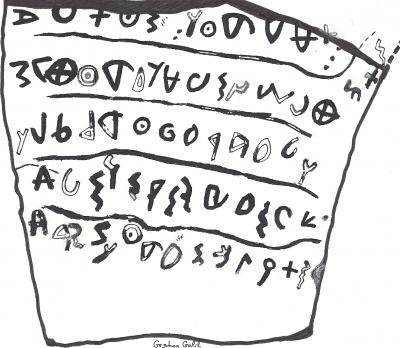 To borrow and misapply the words of the Apostle Paul, “I am in a strait betwixt the two!” I’ve been reading through Gary Olson’s recent piece in the Chronicle of Higher Education, titled “It is who you know and who knows you.” What he had to say in that piece resonates with me. Here’s an excerpt:
To borrow and misapply the words of the Apostle Paul, “I am in a strait betwixt the two!” I’ve been reading through Gary Olson’s recent piece in the Chronicle of Higher Education, titled “It is who you know and who knows you.” What he had to say in that piece resonates with me. Here’s an excerpt:
… I was reminded of an odd paradox of academic life: Faculty members are expected to become world renowned in their disciplines and well respected within their institutions, yet are also expected to avoid appearing to be self-promoting or, worse, boastful. In fact, many professors overcorrect by adopting a false humility—feigning, for example, not to want a particular award, honor, or position when the exact opposite is the case.
Apparently, this stance is so much a part of our collective DNA that it begins even before we become faculty members. Learning to network early in your career is one way to increase the likelihood that you will be successful in academe. I routinely advise new scholars that networking—forming professional relationships with other scholars in a field—is an important way to help build their credentials. I have spent three decades serving as a mentor for doctoral students and junior faculty members, and yet I am continually surprised to hear them dismiss networking as a clear form of self-promotion.
At workshops when I mention networking, someone inevitably blurts out, “Aha! Just as I thought: It’s who you know that counts!” The implication is that, somehow, that system is corrupt and people are rewarded or advanced based principally on favoritism and personal relationships, not on intrinsic merit.
My standard reply is, “Of course it’s who you know. How could it be otherwise? If no one knows you exist, how can you expect you and your work to be ‘known’? Networking is the way you become known, and recognized, in your discipline.”
Clearly, some people have confused the important work of promoting your ideas and research with a kind of fatuous promotion of self. Promoting yourself (“Look how great I am”) is different from promoting your scholarship (“Here’s what my research has discovered” or “Here’s what I’ve been working on lately”). Central to the research endeavor is the desire to disseminate the results of your scholarship widely, and while interesting or groundbreaking research will certainly reflect well on the researcher, the focus should be on the former.
Head on over to the Chronicle’s website and read the entire article, it’s well worth the few minutes it takes. He concludes by saying: “Sure a few academicians go too far in the self-promotion department. But being too shy may well hold back your progress in becoming a player in the discipline. In short, it is who you know (and who knows you) that counts—but that’s a good thing.”
OK, so not everything he says there applies to me because alas, I am not a faculty member. But the kind of tension that the author refers to is one that I do grapple with. I can’t help but feel that – especially as someone who wants to display Christian character as best I can – I don’t want to emphasise my own merits or sing my own praises. It just feels wrong and alien to me. And yet, the very nature of what I want to do – namely to get ahead and actually break into professional academia – requires that I do just that. I know of nobody else in New Zealand who tackles the (specific) issues that I do in the whole area of religious convictions in political philosophy. Does that mean I should tell people that I am New Zealand’s foremost expert on those specific issues? That sounds absurd to me! On the relationship between theology and meta-ethics I can think of one other person who I would trust nearly as much as my own (yes Matt, that’s you 😉 ). Should I tell people that? How pretentious that sounds to me! These are examples of what I mean. They are the kind of thing I generally like to let the audience decide, but of course there are times when the person I want to communicate my credentials do hasn’t had the luxury of being an audience member for longer than the five or ten minutes he or she will spend initially reviewing my job application. I need to tell them and tell them succintly. Should I tell them “just Google my name, you’ll see what I mean”?
It’s a fine line, and one that I have difficulty with.
Glenn Peoples

 Here’s the fourth installment on my series on the mind-body problem.
Here’s the fourth installment on my series on the mind-body problem. Recently I blogged briefly on what the Apostle Paul had to say about the baptism in the Holy Spirit, where he taught that it is something that all members of the church (metaphorically called the ‘body of Christ”) take part in, just by virtue of the fact that they are spiritually counted as members of the church.
Recently I blogged briefly on what the Apostle Paul had to say about the baptism in the Holy Spirit, where he taught that it is something that all members of the church (metaphorically called the ‘body of Christ”) take part in, just by virtue of the fact that they are spiritually counted as members of the church.

 Recently I blogged on what traditional Christian theology says about hell. I cited the examples of Tertullian, Aquinas, Jonathan Edwards and Isaac Watts, all of whom taught in one way or another (Tertullian being the most graphic) that when the saints get to heaven they will derive great happiness and enjoyment from watching the torture of the damned. My point there was that those who claim to hold the traditional Christian view of hell don’t realise that this was part of that theology, and would be less likely to state that they affirm the traditional view if they were aware of this aspect of it.
Recently I blogged on what traditional Christian theology says about hell. I cited the examples of Tertullian, Aquinas, Jonathan Edwards and Isaac Watts, all of whom taught in one way or another (Tertullian being the most graphic) that when the saints get to heaven they will derive great happiness and enjoyment from watching the torture of the damned. My point there was that those who claim to hold the traditional Christian view of hell don’t realise that this was part of that theology, and would be less likely to state that they affirm the traditional view if they were aware of this aspect of it.
 Two men met at a Christian conference. Man A eyed man B suspiciously before striking up a conversation. The following back and forth ensued:
Two men met at a Christian conference. Man A eyed man B suspiciously before striking up a conversation. The following back and forth ensued:
 The greatest show in eternity is going to be one hell of an act, theologians have told us throughout history. Tertullian was the first to say so:
The greatest show in eternity is going to be one hell of an act, theologians have told us throughout history. Tertullian was the first to say so: